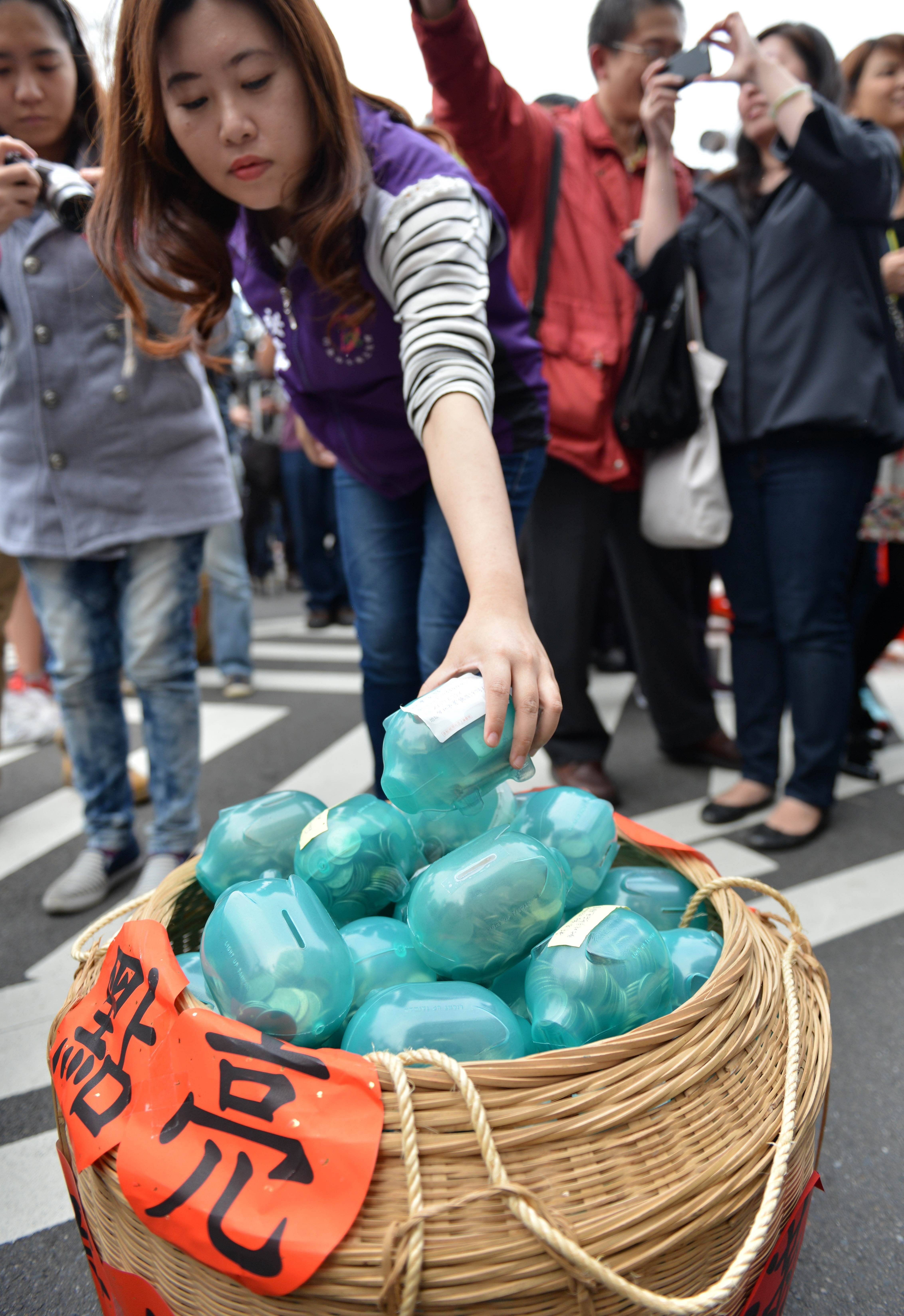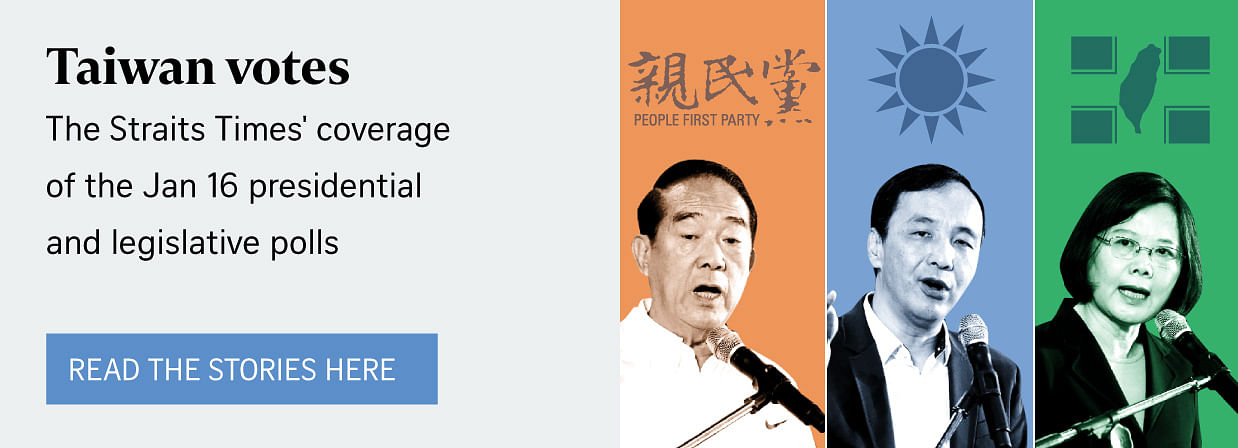And Ms Tsai Ing-wen is one. The DPP chairman is on track to win the presidential race on Saturday and become Taiwan's first woman leader.
Still, it does not hurt to seek support from the heavens.
Despite Taiwan's outward modernity, traditional culture remains important. Whatever the candidates' personal beliefs, a trip to a temple is mandatory.
Ms Tsai kicked off a round of campaigning in Tainan city by visiting the Kaitai Tianhou Temple in Anping district, while Mr James Soong of the People First Party visited the Chingshui Zushi Temple in New Taipei, where he swore before the deity that he would "find hope to return to all Taiwanese if elected president".
In the past, agricultural symbols were also key in appealing to grassroots and countryside voters. During previous campaigns, turnips, pineapples and garlic emerged as powerful emblems of politicians' connectedness with the lao bai xin (ordinary folk).
Garlic, in particular, was particularly pungent as a symbol. In Taiwanese, the word "garlic" sounds similar to "get elected" (dongsuan).
This time, cabbages are rolled out to make a point: to support local farmers and oppose the opening up of the market to Chinese producers as vegetable prices plunge.
The pro-independence Taiwan Solidarity Union, a DPP ally, prepared an impressive mini-mountain of cabbages for supporters at a dinner on Saturday. When approached, a campaign worker urged the Straits Times to buy one: "Just NT$10 (43 Singapore cents) each."
Other campaign memorabilia come free. And they are not just the usual pens or calendars. Instead, they are tailored to the candidate's message or the demographic group of the voters.
Pressing flesh at a market in the northern port city of Keelung over the weekend, Mr Hau Lung-bin, a KMT legislative candidate, distributed dishwashing sponges to housewives. Others have given out items ranging from heat packs (temperatures here dipped this week) to condoms (to promote safe sex).
With new parties come new ideas. The year-old New Power Party, co-founded by ponytailed rocker Freddy Lim with the platform of social progressiveness, has savvily engaged the tools in its arsenal.
At its rally, attended by mainly Taiwanese aged below 30, a sign interpreter conveys the speeches. An emotional skit narrates the story of Taiwan's history as the party sees it, positioning the KMT forces that came to Taiwan after World War II as among the island's colonial masters.
Mud-slinging by both sides is par for the course, too.
Mr Lim's rival, KMT legislative candidate Lin Yu-fang, 64, called on voters not to support someone who has "hair that is longer than a woman's and is mentally abnormal". He later clarified that he was referring to Mr Lim's previous criticism of a prosecutor who had called sexual predator Justin Lee "childish and perverted".
In response, Mr Lim called on Taiwanese to marginalise a "dinosaur party whose representatives consider a man with long hair to be mentally abnormal".
- With additional reporting by Jermyn Chow in Kaohsiung
WATCH THE VIDEO ONLINE
Election campaigning, Taiwan-style.
http://str.sg/ZHhA











